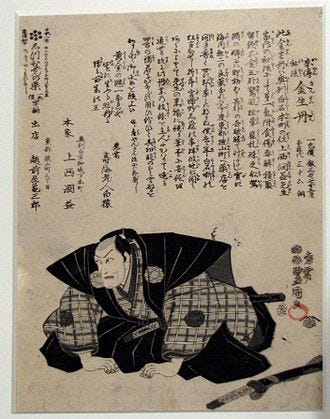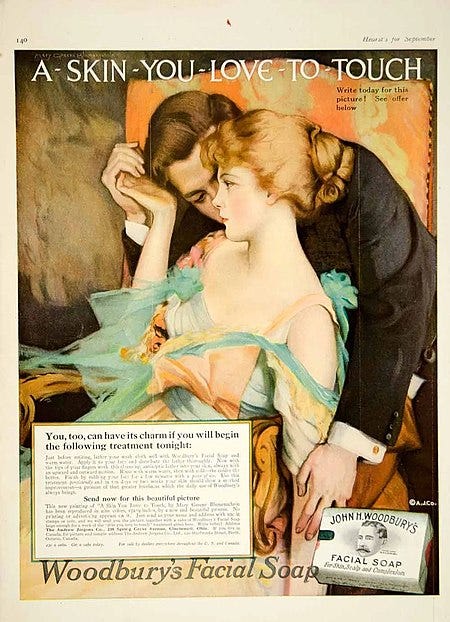

Why Hard Work Isn’t a Good Thing
source link: https://articles.lifeworkmag.com/why-hard-work-isnt-a-good-thing-89d6fbace00f
Go to the source link to view the article. You can view the picture content, updated content and better typesetting reading experience. If the link is broken, please click the button below to view the snapshot at that time.

Why Hard Work Isn’t a Good Thing
The proper purpose of work is to get stuff done, not virtue signal about what good people we are
Photo by Tim Mossholder on Unsplash
The modern world places a huge emphasis on working hard. People who are considered hard workers are a clear cut above everyone else. People who don’t work hard, well… they kinda deserve what they get.
You probably share this attitude, even if you wouldn’t put it in such crass language. You enforce the idea that hard work is a moral good for yourself every day.
- If you’re a shift manager looking to hire a new associate for the Wendy’s location you manage, who do you want: the mellow candidate who takes it easy, or the ‘hard worker’?
- If you’re on a date and you get the impression the other person isn’t a particularly hard worker, are you impressed or repulsed?
- If you’re going through a tough patch at school and you’re not doing as much of your homework as you usually do, do you take it easy and tell yourself ‘it’s just school?’ or do you beat yourself up inside for being lazy and irresponsible?
You honor hard work even if the work itself isn’t terribly productive. We look up to people who are willing to do things “the hard way,” even if an easier way exists. If someone achieves something impressive, that’s all well and good, but it’s even more impressive if they did it walking uphill to school both ways. If we meet a man who is digging ditches only to fill them again, we wonder why he’s doing this pointless task, but we do admire his grit.
Some parents even go so far as to assign their children these pointless tasks to teach them a lesson about hard work. One of my friends frequently had to “pick the crabapple tree” as a punishment growing up. Crabapples are not edible, they fall on their own, and wildlife eat them, so picking crabapples off the tree and throwing them away both wastes time and harms the ecosystem. It’s also backbreaking labor, especially for a child. Her parents punished her with this task precisely because it was demoralizing and pointless, making it good training for a world that values hard work.
The importance of hard work is even reflected in the world’s major religions. Christians believe the hardworking poor shall inherit the Earth, and that man is purified through hard work. Hard work is virtuous.
It’s not just Christians, either. Muslims, Hindus, pagans, atheists, and everyone else considers hard work virtuous too. After all, before modern technology, people had to be hardworking or they would starve to death. People who didn’t work hard were a burden to everyone around them.
Right?
Hard Work Is a Historically New Concept
You have gone your whole life thinking hard work is important and has always been important. But in reality, the notion that being hardworking is important in its own right is historically new.
Rewind a thousand years. Aristocracy and the landed gentry enjoyed 99.99% of all the wealth while slaves and peasants labored in the fields day after day to survive, only for what little they had to be taxed. It’s hard to think of a more obviously unjust system.
But instead of collapsing, a series of psychological pressures resulted in the evolution of a religious and moral system that supported this inequity: the notion that hard work is virtuous in and of itself. Allow me to explain.
The story goes like this: Poor people who work hard get to go to heaven, and poor lazy people who don’t go to hell. Idle hands are the devil’s workshop.
The aristocracy, though, doesn’t have to work hard. They were chosen by God to steward civilization. And that’s a lot of responsibility, being God’s representative on Earth. It’s hard work. That’s why they need all those people serving them grapes and preparing their baths. If the hardworking poor stop preparing their baths, how are they supposed to steward civilization?
To be clear, at no point did a cabal of powerful people get together and say “Let’s socially engineer a moral system that supports our wealth inequality.” This system evolved on its own.
To understand how, imagine you are an extraordinarily wealthy member of an ancient European aristocracy. You are born into this world and you clearly have so, so much more than the people around you. Your slaves wash your feet while they sleep in rats' nests in the slave quarters underneath the castle.
You, as a human, have an innate subconscious drive to…
- see yourself as a good person
- see the world as a fair place
- not lose all your cool stuff
You observe that the peasants around you, while they have harder lives, seem to be rather stupid. They can’t speak very well and they can’t read at all. They don’t know the first thing about court life. They spend all their free time drinking and doing drugs. If you were to swap places with them, you would immediately be able to do everything they do (albeit with much complaining), but they would not know what the hell was going on. You conclude, quite reasonably, that there is some quality you have that the peasants don’t.
You are also a God (or gods)’ fearing person. You know God made the world perfect according to His design. So this quality that you have that the peasants don’t must be the reason God gave you all the wealth and made the world so the peasants serve you. You were chosen by God to rule. How exciting! When you sit around eating grapes and thinking profound thoughts, you are fulfilling your holy purpose. To make you work would be blasphemous.
The peasants, on the other hand, were chosen to work. So if they don’t work, they’re violating God’s orders. Big yikes! For them, failing to work hard is a grievous sin. As their God-chosen ruler, it’s your sacred duty to make sure they work. When you whip them and send them back to work, you’re ensuring their souls don’t go to hell. What could be more selfless and noble than that?
Now imagine you’re the whipped peasant. You also see the inequity, you want to believe the world is a fair place, and you believe that God arranged the world according to His perfect design. You can only conclude God chose you for this role. Since you’re pious, you don’t feel angry about your lot — you feel blessed that you have the opportunity to serve in His Grand Plan. This feeling, of course, makes you even more virtuous.
And you need to feel good, virtuous, and chosen by God, because otherwise, you may realize you’re a whipped slave and that’s all you’ll ever be and that’s simply psychologically too much for anyone to bear.
What makes it even worse is that the treatment of peasants and serfs, while barbaric, was less egregious than the treatment of chattel slaves during the 18th century. Their landowner would show up during tax season to take their shit, but otherwise, leave them alone. So when the serf down the lane was whipped by your landowner because he tried to skim off the top, you didn’t think “how unfair,” you thought “that’s what he gets for not doing his godly duty.”
Ideologies evolve in response to selection pressure the same way biological organisms do. Ideas that are prone to self-perpetuation will spread throughout society even if no particular person or group is trying to spread them. The notion that hard work is virtuous is one of these ideas. In the Middle Ages, it was convenient to believe hard work was itself a virtue, for the aristocracy and peasantry alike.
The End of Monarchies and The Rise of Hard Work
As democratic and socialist sentiment bloomed across Europe in the twentieth century, the notion that certain people were chosen by God to lead was left behind — but not the ethic of hard work. Instead, industrial-era tycoons like Rockefeller extended the ethic of hard work to everyone: all people should work hard, from the richest to the poorest.
The rich and powerful used to be praised for their idleness. Now they’re praised for their 80-hour workweeks.
Of course, the rich never actually started working all that hard. But now, instead of publicly eating grapes and praising their own idleness, they put a lot of energy toward seeming to work hard.
Over the last fifty years, that attitude has trickled into the rest of society, leading to management slogos like “If you have time to lean, you have time to clean” and computer mouse docks that make it seem like your mouse is moving when it isn’t.
But as the world has industrialized, the amount of real work that needs doing has gone down drastically. Economists in the 1890’s routinely predicted what they called the “end of work”: a time when technology and resources had proliferated so widely that nobody would need to work more than four hours a week to meet their survival needs. Philosophers readied themselves for a utopia that never arrived.
The most offensive part of this story is that the economists weren’t wrong. The amount of real work required continued to go down.
But as jobs disappeared, incomes disappeared. Wealth became increasingly concentrated in the hands of the industrial tycoons. It became clear that if wealth was not redistributed somehow, there would be enough for everyone, but not everyone would be able to enjoy it.
Workers knew it, too. They began to organize, demanding better working conditions, shorter hours, and a greater slice of the profits. Many workers were still emotionally attached to the idea of hard work as a virtue, but radical protesters aimed to make the four-hour work week a reality.
But of course, the rich tycoons didn’t want that. They wanted to keep increasing their profits. So they did something clever. They invented marketing.
Advertisements have existed for all of human history. But until recently, they were primarily informational. They focused on features of the product and how you could expect your life to be changed by it.

This flyer from 1806 China, for a medicine called kinseitan, is mostly text.
Informational ads don’t create desire. If you are sick and you could benefit from the medicine kinseitan, this advertisement will encourage you to purchase it, but if you’re not sick, this advertisement means nothing to you. Generally speaking, advertisements were only appealing to people who already had it in mind to buy something.
It was during the industrial era that tycoons hit upon the idea of stimulating desire in customers. Old clothing ads might say “all cotton, machine washable, great durable shirt.” New clothing ads simply featured an illustration of a beautiful woman smiling, with text emphasizing how the clothes will make you happy.

A 1916 facial soap ad. See the emphasis on the beautiful people and their lifestyle.
Over the next hundred years, the text and information portion of ads got smaller and the visual portion got bigger and more astonishing.
Modern advertisements for consumer products don’t even have text. All they have now is a picture of a beautiful person and a brand name, designed to do nothing more than stimulate your insecurities.
The worst among them don’t even sell specific products. They skip selling a specific product and aim directly to make you feel inferior.

What is this ad even trying to sell?
Workers stopped agitating for shorter workweeks. Now, in addition to feeling like they ought to work because it’s an ethical imperative, they also felt like they needed the money from work to buy stuff they didn’t even want a generation ago.
What Was Life Like Before Hard Work?
If there is work to be done, it is certainly good to do that work. But working hard is only practically useful if there is hard work to be done.
Before the sanctification of hard work, that’s the attitude people had about hard work. Ancient peoples didn’t castigate each other for being lazy. They didn’t feel ashamed about laying around all day if the food pile was full and their shelters were intact.
Even in developed empires like the Roman Republic, leisure time was an aspirational virtue. Leisure time could be used to learn how to read and write. People with much leisure time studied philosophy and the arts. Working-class Roman citizens were ashamed of how much they worked, not proud, because more work meant less time for leisurely enjoyment of the arts and sciences. Roman aristocrats looked down on working-class citizens. “Oh, look at them, working, how pathetic. Can you imagine?”
This seems, to me, to be a much healthier attitude toward work. It’s virtuous to do work if there is work to be done, but doing unnecessary work is a vice. Unnecessary work cuts into valuable leisure time we can use for pursuing our interests, bonding with loved ones, and educating ourselves, all of which are vital for individuals and for society as a whole.
In Conclusion
We are, as a society, picking the crabapple tree.
Housing developers are building 3000 square foot homes and luxury apartment buildings with granite countertops even though they could build three times as many affordable houses by using linoleum and vinyl finishes. Developers don’t build affordable housing anymore. The only housing anyone can find is way out of their price range.
Same with cars. We have the technology to produce $5000 cars in the US, but auto manufacturers don’t. They’d rather produce cars with leather seats, smart consoles, and self-steering mechanisms than produce a car poor people can afford. The wealthy fall asleep in their self-driving Teslas while the rest of us can’t afford routine brake pad work.
Lots of people take a left turn at this point, politically and economically speaking, but this situation doesn’t seem like a result of economic or political systems to me. The Soviet Union suffered from the same glorification of hard work that every other European nation has for hundreds of years. Same with China today, as far as I am aware. No, I don’t think the problem is political or economic.
This problem seems cultural. At a fundamental level, we consider work valuable for its own sake. Americans look down on Scandanavians for not working so hard at their corporate jobs despite the fact that Scandanavians are wealthier, healthier, and happier. Every time Medterranian nations take their month-long summer vacations, we Americans sneer, despite the fact that deep inside we really, really want a month-long Mediterranean vacation too.
We can have that. We can have ten-hour work weeks, Mediterranean vacations, and better conditions for everyone. But the first step is for us to let go of the idea that hard work is a virtue.
- If you are a working student, and you meet a fellow student who doesn’t have to work because their wealthy parents are funding their education, don’t look down your nose at them or judge them for not working as hard as you. Acknowledge how unfair it is that you have to work harder than them, of course, but also ask yourself “How could we create a world where no one had to work while attending school?”
- If you are that supported college student, like I was, don’t have anxious breakdowns because you feel like you “should be working harder.” Simply recognize you’re enjoying something that everyone could enjoy, if only we organized society that way.
I’ll close with a story. My partner is attending his graduate program right now. He is receiving enough grant money to live off of for the duration of his program, so he doesn’t need to work and attend school at the same time. When he’s not working on school assignments, he’s growing his Twitch channel, streaming for up to six hours a day.
Invariably, when I share this with other people, they have nearly the same response:
“Wow, all he does is stream all day?” they say, their tone ever-so-slightly judgmental and incredulous.
Then the speaker looks at me. It’s clear they expect me to respond by saying something like yeah, he’s being lazy, I wish he would get off his ass. But what I actually say is “Yeah! I’m so happy he has the opportunity right now to pursue one of his dreams. He wouldn’t be able to do this if he had to work and go to school at the same time.”
And their response to that, nearly every time? “Well, at least he’s in school. It’s not like he’s doing nothing.”
As the days go by, this response makes me feel more and more furious.
As a society, we are collapsing under the weight of underpaid and overworked soul-sucking jobs, jobs that only exist at all because politicians and billionaires hoard their ever-increasing wealth. The very people I’m speaking to will themselves admit that they hate their jobs, their financial positions, and their lives, tacitly admitting they’re a victim of the system.
But the cultural imperative to honor work and shame leisure is so strong that their default response is to shame my partner, even though we all dream of doing precisely the same goddamn thing.
This society is upside-down. The purpose of life is not to work. The purpose of life is to enjoy it. It’s time we remembered that.
Recommend
About Joyk
Aggregate valuable and interesting links.
Joyk means Joy of geeK